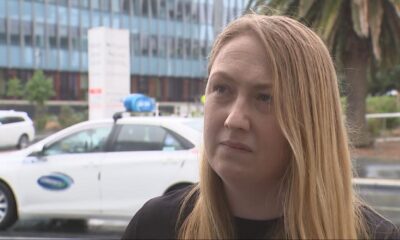World
UN Conference Prioritizes Food Security Over Emission Targets

The recent conference held by the United Nations Food and Agriculture Organisation (FAO) in Rome emphasized the urgent need to prioritize food security as the world grapples with a growing population. Participants at the event concluded that the primary role of the global food system is to ensure adequate nourishment for all, even while acknowledging the challenges posed by greenhouse gas emissions. The conference took place at the end of September 2023 and has sparked significant debate about the balance between agricultural production and environmental sustainability.
In a notable statement during the closing session, the consensus among delegates was clear: “Feeding people, not bringing down greenhouse gases.” This declaration underscores the prevailing perspective that the immediate necessity is to provide food for a population projected to reach nearly 9.7 billion by 2050. The call for action was directed towards political leaders to ensure that agricultural policies align with this imperative.
Prominent environmental organization Greenpeace voiced strong opposition to the conference’s stance, organizing protests advocating for a shift towards agro-ecology and the cessation of intensive farming practices. Greenpeace argued that without addressing the environmental impacts of agriculture, food security efforts could ultimately be undermined. The organization highlighted that sustainable practices are essential not only for food production but also for maintaining ecological balance.
The conference brought to light several critical requirements for advancing sustainable livestock practices. It emphasized the need for enhanced political leadership, increased funding, and significant investment in technologies that promote sustainability within the food system. Experts, including agricultural scientists and policymakers, pointed out that addressing climate change and food security are interconnected challenges that require a multifaceted approach.
The discussions also focused on innovative agricultural methods that can enhance productivity while minimizing environmental footprints. Strategies such as rotational grazing, improved feed efficiency, and the integration of technology in farming practices were highlighted as potential pathways to achieving sustainable livestock production.
Dr. Jacqueline Rowarth, an esteemed agricultural scientist, participated in the conference and underscored the importance of finding a balance between feeding the population and reducing emissions. She noted that while emissions targets are critical for the environment, they must not overshadow the immediate challenges of hunger and food insecurity faced by millions around the world.
The FAO conference has set the stage for ongoing debates in the agricultural and environmental sectors. As governments and organizations reflect on the outcomes, the challenge remains to create policies that effectively address both food security and climate change. The discussions in Rome are expected to influence international agricultural policies and practices in the years to come, as stakeholders work towards a sustainable future that meets the needs of a growing global population.
-

 Sports2 months ago
Sports2 months agoNetball New Zealand Stands Down Dame Noeline Taurua for Series
-

 Entertainment2 months ago
Entertainment2 months agoTributes Pour In for Lachlan Rofe, Reality Star, Dead at 47
-

 Entertainment3 weeks ago
Entertainment3 weeks agoNew ‘Maverick’ Chaser Joins Beat the Chasers Season Finale
-

 Sports2 months ago
Sports2 months agoSilver Ferns Legend Laura Langman Criticizes Team’s Attitude
-

 Politics4 weeks ago
Politics4 weeks agoNetball NZ Calls for Respect Amid Dame Taurua’s Standoff
-

 Entertainment2 months ago
Entertainment2 months agoKhloe Kardashian Embraces Innovative Stem Cell Therapy in Mexico
-

 World3 months ago
World3 months agoPolice Arrest Multiple Individuals During Funeral for Zain Taikato-Fox
-

 Sports2 months ago
Sports2 months agoGaël Monfils Set to Defend ASB Classic Title in January 2026
-

 Entertainment1 month ago
Entertainment1 month agoTyson Fury’s Daughter Venezuela Gets Engaged at Birthday Bash
-

 Sports1 month ago
Sports1 month agoHeather McMahan Steps Down as Ryder Cup Host After Controversy
-

 World1 week ago
World1 week agoSevere Winds Hit New Zealand, Over 100 Flights Canceled
-

 Entertainment1 month ago
Entertainment1 month agoTyson Fury’s Daughter Venezuela Gets Engaged at Birthday Bash





















